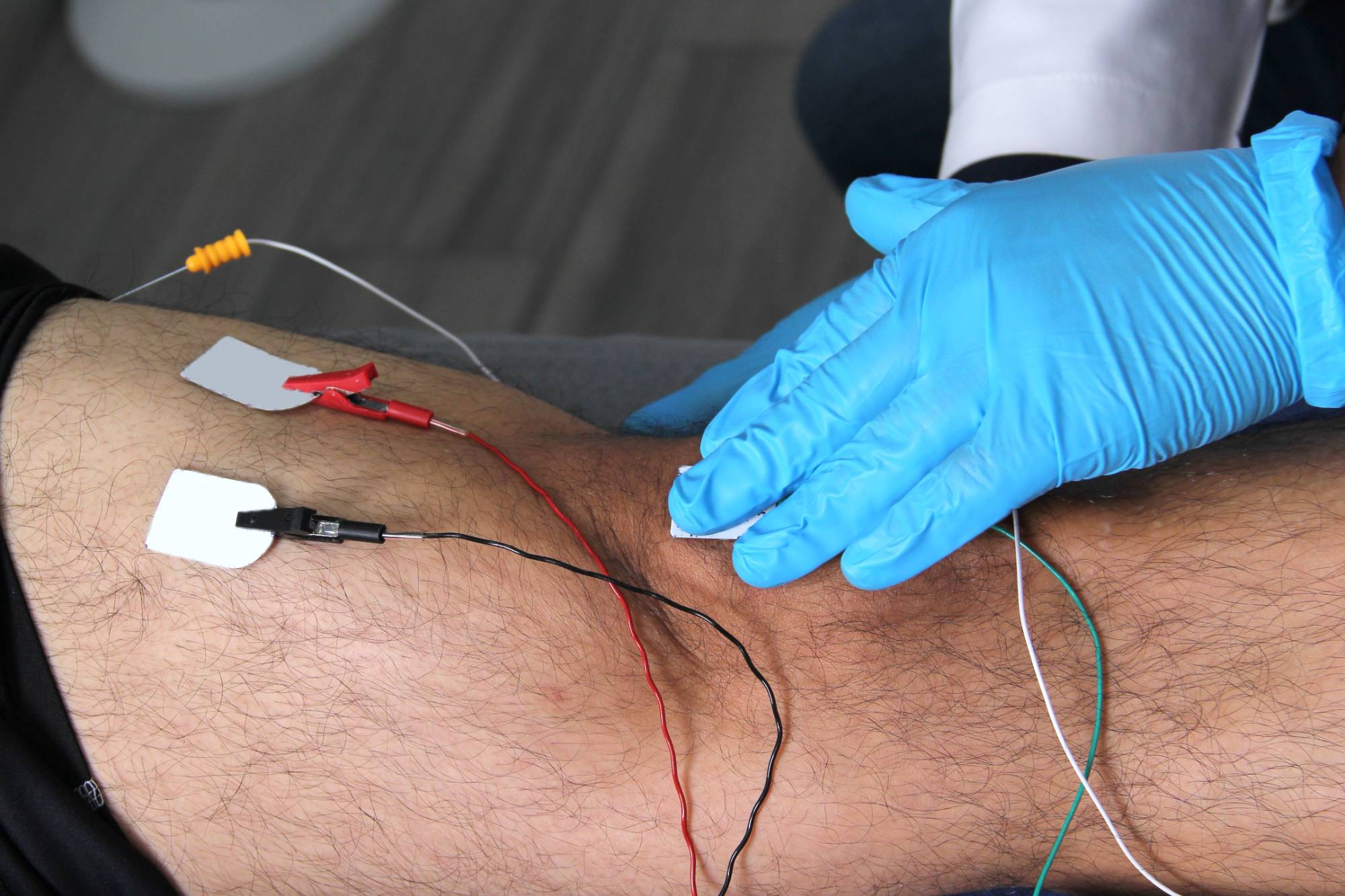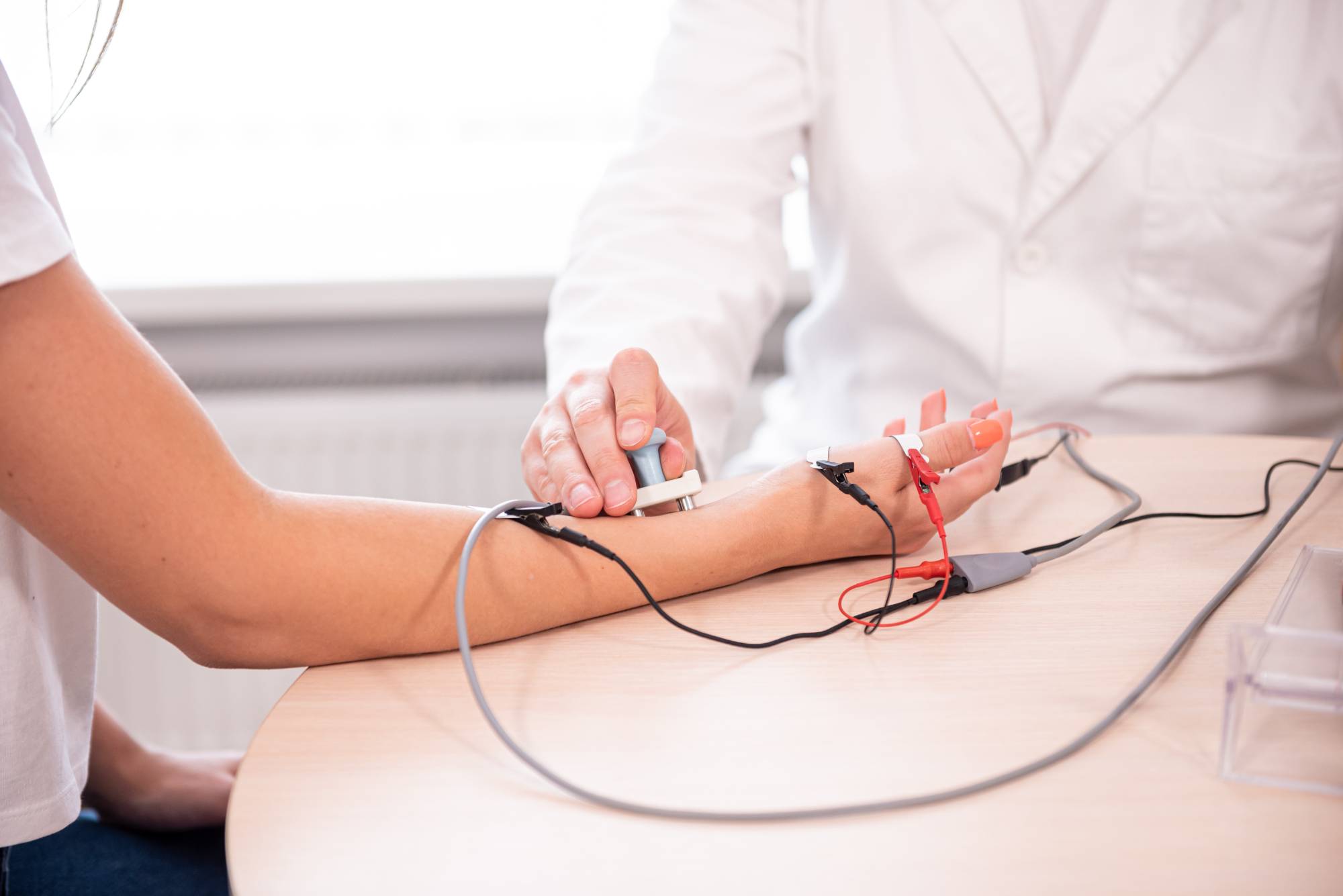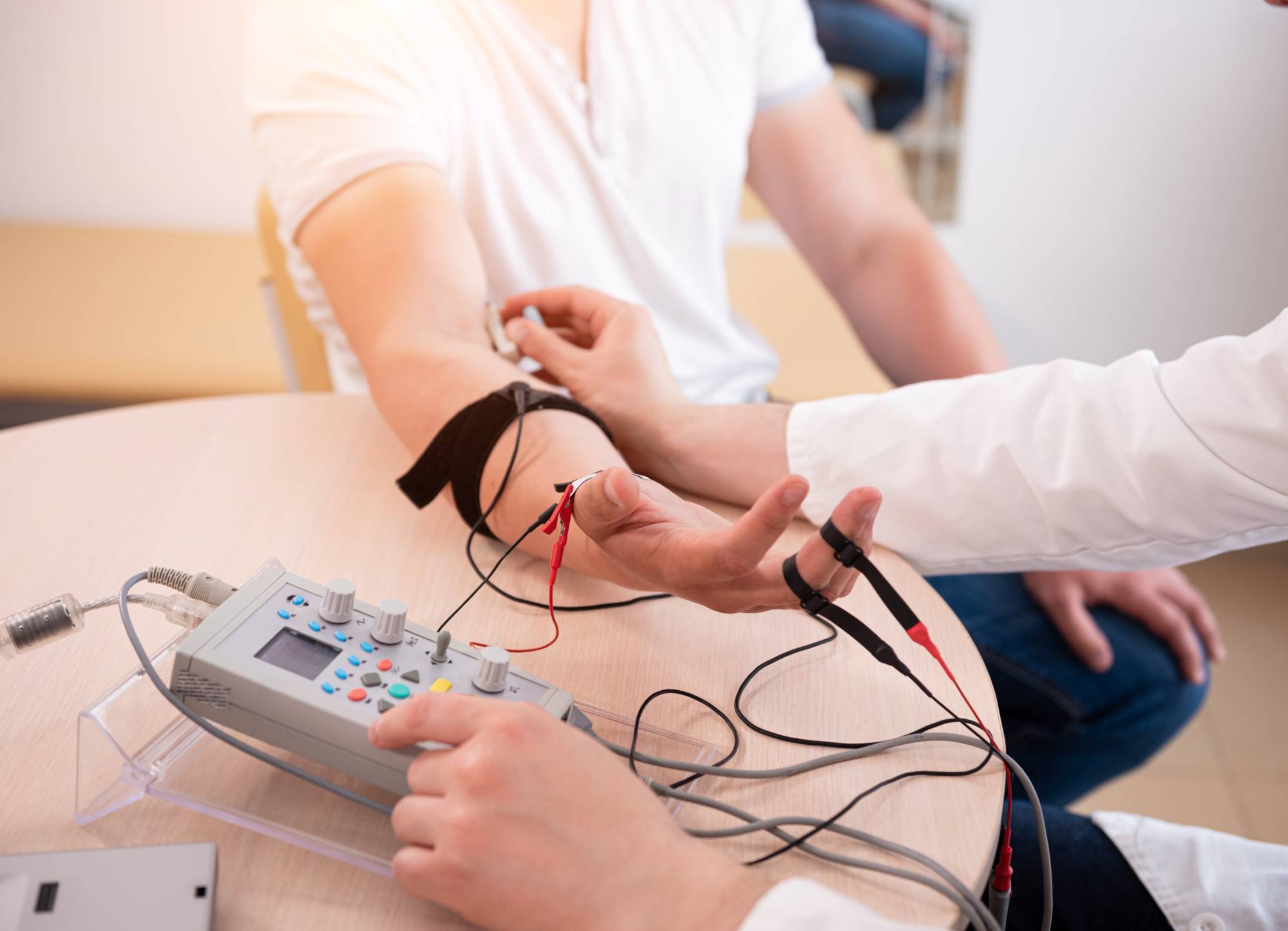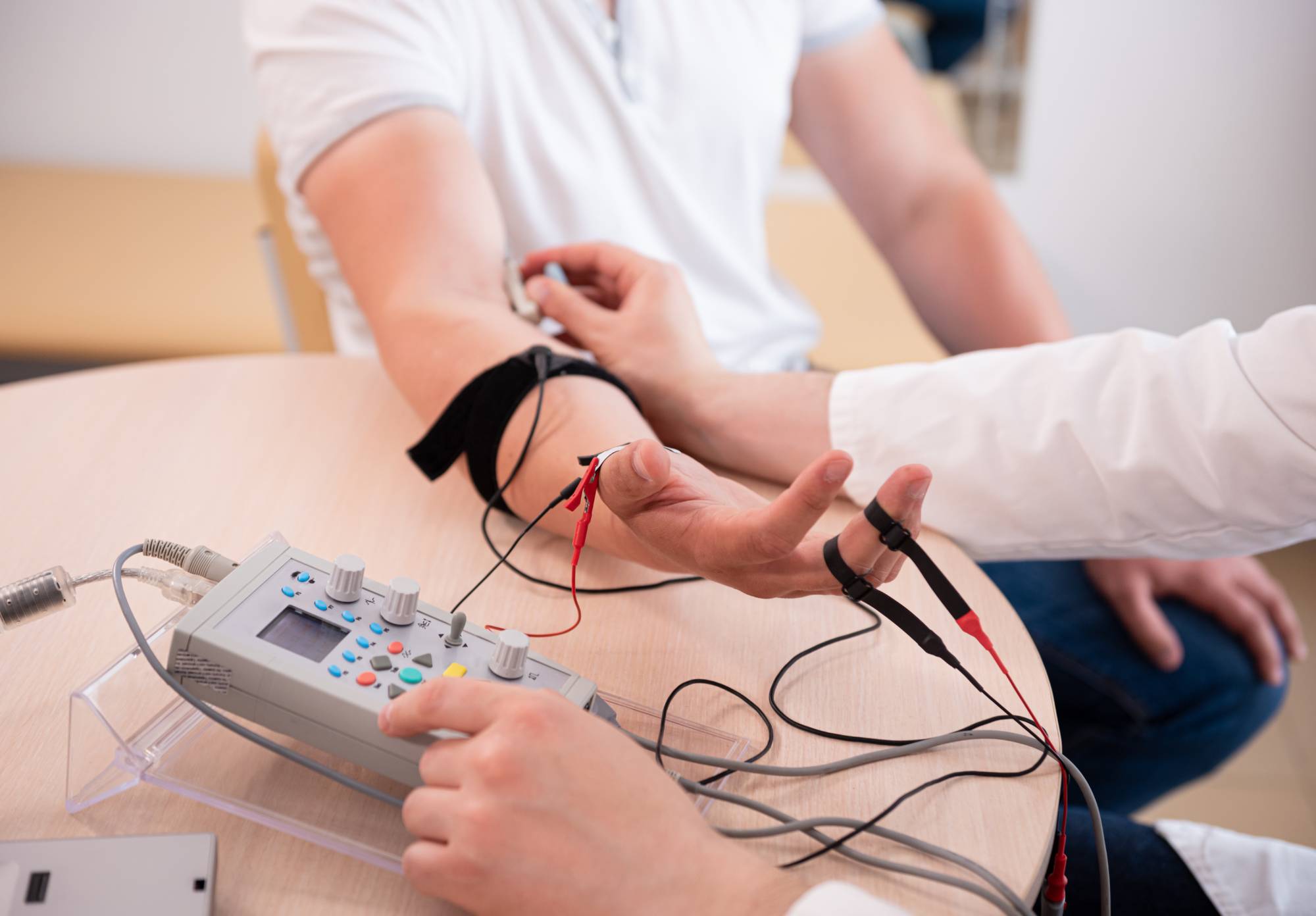Professional electromyography testing that pinpoints exactly what’s causing your symptoms, so you can move forward with the right treatment.

Reviews

You’ve been dealing with numbness, tingling, or muscle weakness long enough. The uncertainty is exhausting, and you need real answers.
EMG testing gives you those answers. This diagnostic procedure measures how well your nerves and muscles communicate, identifying exactly where the problem lies. Whether it’s carpal tunnel syndrome, sciatica, peripheral neuropathy, or another nerve condition, you’ll know for certain what you’re dealing with.
No more guessing. No more wondering if the pain will get worse. Just clear, definitive results that help you and your doctor create the right treatment plan. Most patients leave our office feeling relieved just knowing what they’re facing and how to address it.
NY Spine Medicine has been helping Florida patients get accurate nerve and muscle testing for years. We understand that coming in for EMG testing often means you’ve already been through a frustrating journey of unclear symptoms and inconclusive results.
That’s why we focus on thorough, precise testing using advanced electromyography equipment. Every test is performed by our experienced specialists who take the time to explain what we’re doing and what the results mean for your specific situation.
You’re not just another appointment. You’re someone who deserves clear answers and a path forward.

The EMG test has two parts, and the whole process typically takes 30 to 60 minutes. First, you’ll have a nerve conduction study where small electrodes are placed on your skin. These send mild electrical pulses to measure how fast your nerves transmit signals.
Next comes the electromyography portion, where a thin needle electrode is inserted into specific muscles to measure electrical activity. Yes, there’s some discomfort, but most patients find it very tolerable. Think of it like getting blood drawn, but in different areas.
Throughout the test, our specialist explains what we’re seeing and answers any questions. You’ll get your results the same day, along with a clear explanation of what they mean and recommendations for next steps. No waiting weeks to find out what’s going on with your body.

Ready to get started?
Your EMG testing includes both nerve conduction studies and needle electromyography to give you the complete picture. This comprehensive approach helps identify conditions like carpal tunnel syndrome, ulnar neuropathy, radiculopathy, peripheral neuropathy, and various muscle disorders.
The testing is performed using state-of-the-art equipment that provides precise measurements and reliable results. You’ll receive detailed documentation that clearly shows nerve function, muscle response, and any abnormalities that explain your symptoms.
Most insurance plans cover EMG testing when medically necessary, and we work with you to understand your coverage before the appointment. Our goal is removing barriers so you can get the answers you need without financial stress.

New York:
Florida:
Support